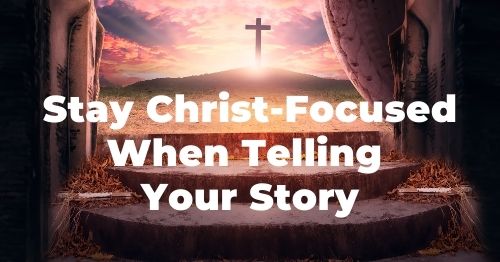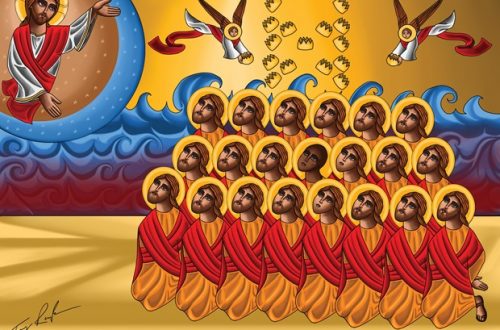The Noah Film: A Christian Response
I loved John Grisham’s book, The Firm. But my husband, Gary, never read it. Consequently, when he and I watched the movie together, I disliked what Hollywood had done to the story. But Gary, unfamiliar with the plot in the original, really liked the movie version. In fact, for some strange reason it annoyed him when I constantly interrupted the film to whisper, “That’s not how it happened in the book! The book was way better!” In fact, he finally, kindly, asked me to be quiet so he could just enjoy the show.
Never judge a book by its movie, as the saying goes.
Hollywood’s new telling of a story and butchering some of the original in the process is nothing new. It’s not persecution. It’s not intentional irreverence. It’s the challenge of taking a form of narrative that allows backstory and interior dialogue and moving it to a form that allows only for show-show-show. Oh. And it’s also about what will earn the most money.
Complicating the dynamic in the case of the Noah movie that released this past weekend is the fact that the story is thousands of years old. And that means the writer of Genesis didn’t do narrative structure the way Westerners do. The three-act story structure, with a beginning-middle-end—the structure to which we are so accustomed—is only about as old as Aristotle, who lived in the fourth century B.C. That’s thousands of years after Noah—and Moses, who recorded Noah’s story.
See the problem? Taking an apple story and making it an orange story requires making some extra “creative decisions” that those who love the book version will dislike. A lot. Especially because the book in question is not just some author’s story. It’s the author’s story.
But think about it…even when Christians produce Bible stories, we sigh and wish they’d stop messing with the text. Consider all the objections to The Bible TV series. Or going further back, when Dorothy L. Sayers wrote the BBC version of the life of Christ. (They said she made Peter and Andrew sound like lowly fishermen instead of apostles. Appalling!)
Not only does the typical movie structure of storytelling require changing the original to shoehorn it into the contemporary structure. It also requires filling in some details the written story didn’t give. Like who was the real father of the prince of Egypt. And whether somebody handed Jesus's mother a towel to wipe off his blood. And whether Noah frequently used God's name.
We can argue all day about whether such a dynamic ought to be so. Until we master movie-making and create a new structure of our own, it’s the reality. So what do we do with that reality?
Here’s what we don’t do: We don’t assume we’re being persecuted because someone changed our story. We don’t wail because the film doesn’t mention God. (The Esther story never mentions God, and we still got the point.) We don’t write long lists of where the producers got it wrong. And we don’t complain, as one person did, that the writer took a nice man and made him out to be a drunk. (Ps-s-t: That drunk part’s actually in the original.)
Here’s a better way: If we can do so in good conscience, we patronize the arts when they tell our story, even if they do so imperfectly. Although Mel Gibson's The Passion of the Christ took some creative license, that movie is the highest-grossing non-English-language film of all time, and the U.S.’s highest-grossing R-rated film ever. Ever. And suddenly LA’s greed has worked in our favor, because the film’s financial success got Hollywood asking about what Christians want. And remember, Hollywood hadn’t done that for a while. Not since about the time of Ben-Hur. Or at least that’s what TIME magazine reported in its March 31 edition. TIME also reported that Jonathan Bock of Grace Hill Media "believes the momentum behind faith-based films is more than just a blip in Hollywood… It's a return of the Christian community's role as a patron of the arts."
In terms of our interactions with others about the film, we also highly recommend the original. We say, “Yeah, the movie was maybe a good start. But the book version is way better—especially if you read the entire backstory starting from the beginning. If you don’t have a copy, I’d be happy to lend you mine. Or I’ll send you a link.”
Just don’t say all that while they’re watching the movie. Wait at least until they get out of the theater.





2 Comments
Sue Bohlin
Leave it to you Sandi . . .
. . . to provide perspective that we're not hearing any place else. Thanks for the voice of reason.
Sandra Glahn
Kairos opportunity!
Appreciate your encouragement. One of my friends, Alyssa, wrote, "I started reading the Bible for the first time on my own in high school after watching Prince of Egypt. I didn't know if it was biblical or not, so I started reading to find out. Subsequently fell in love with the Old Testament." Today, she is walking with Christ. Her take: "I'm totally in favor of Biblical stories hitting big budget wide screen release. Get people curious!"